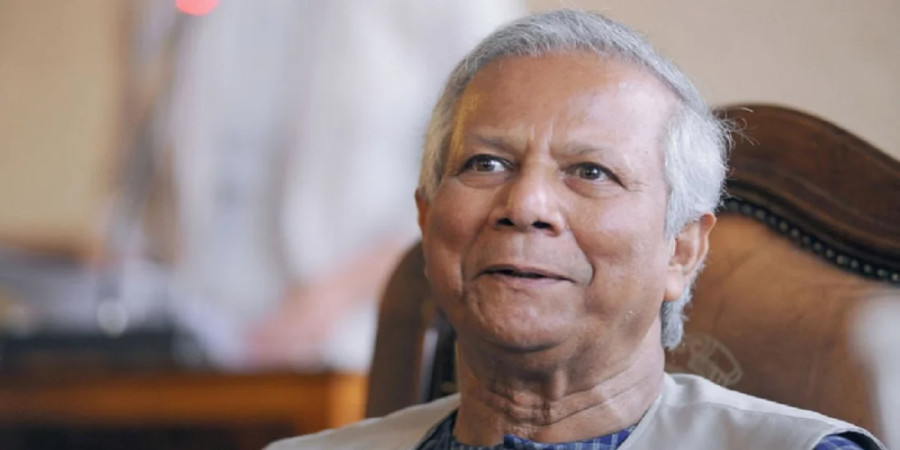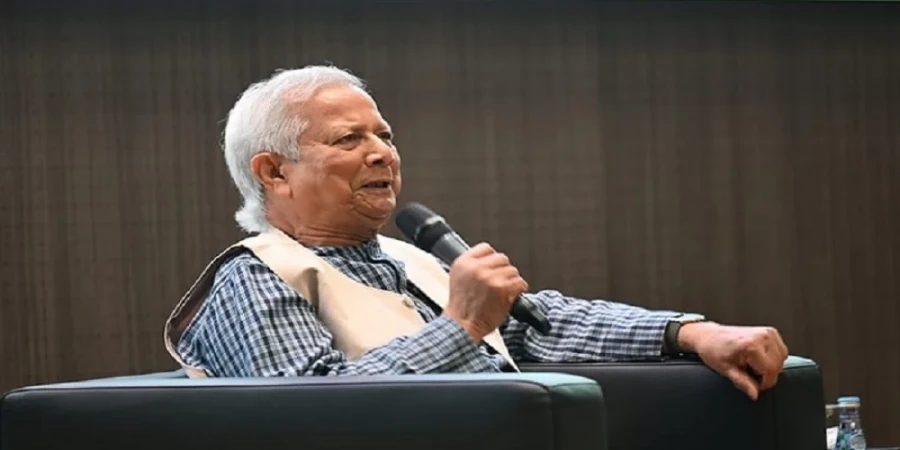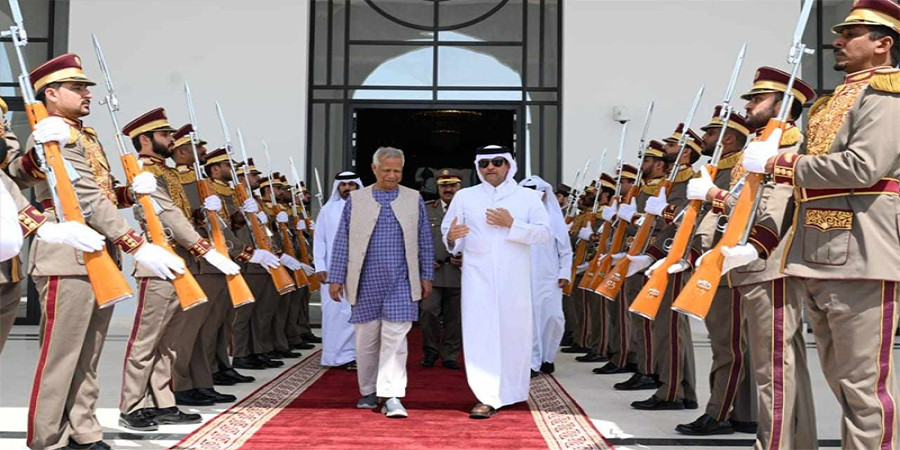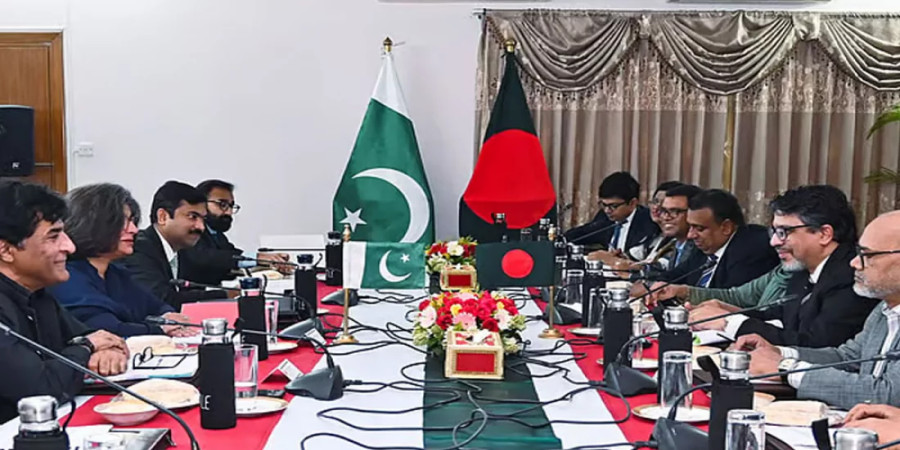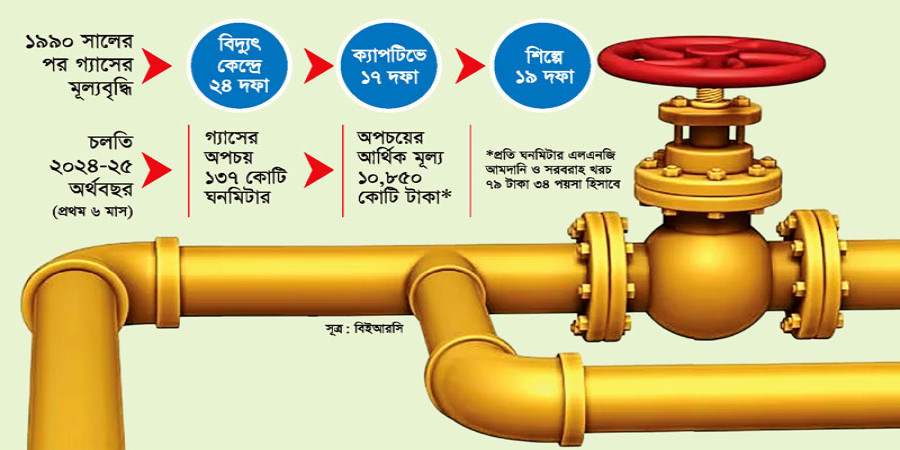
ছবি: Photo: Collected
The government has raised gas prices several times in an effort to reduce the financial losses in the country's gas sector. The promise of ensuring uninterrupted supply by increasing prices, however, has not been fulfilled.
Although businesses are paying the increased gas rates, they have not received consistent gas supply. While the interim government did not raise prices on existing connections, it recently raised the price for new industrial and captive connections by 33%. Meanwhile, gas theft and wastage in the sector have continued unabated, and gas supply has not improved. Industry experts warn that the price hikes will discourage new investments and increase unfair competition.
Experts in the energy sector say the government is importing gas to address the supply crisis, and raising prices to reduce the gap between import costs and selling prices. However, the large-scale theft and corruption in the gas sector remain unresolved. These issues, including system losses, theft, and corruption, are major contributors to the financial losses in the sector. Despite this, successive governments have increased gas prices in various sectors over the years to alleviate the sector's financial strain.
According to the Energy Division, the recent price hike for new industrial and captive connections is minor compared to the import cost and will not increase the costs for existing industries. They argue that this move offers new customers an alternative option, allowing them to use LPG or other fuels if they do not want to accept the higher gas prices.
Since 1990, gas prices for the electricity sector have been raised 25 times, and gas prices for industrial sectors have increased from 1.33 taka per cubic meter to a maximum of 42 taka over the past 30 years. These price hikes have adversely affected the industrial sector, leading to reduced production in areas with inconsistent gas supply. Many entrepreneurs have moved away from the sector due to these challenges.
The recent 33% price hike for new industrial connections has caused concern among foreign investors. The Foreign Investors Chamber of Commerce and Industry (FICCI) has called the new price structure discriminatory and warned that it will create challenges for the sector. The organization believes that different prices for different customers will create disparities and affect production costs, damaging investor confidence and increasing risks for future investments.
Similarly, the European Union's business organization, EuroCham Bangladesh, has criticized the price hikes as discriminatory and unfair. They have warned that such pricing models will create risks for competition and hinder investments in the sector.
Professor Shamsul Alam, an energy expert, noted that before reducing gas prices, the government must first address wasteful spending in the energy sector. He emphasized that it is impossible to lower prices while these inefficiencies persist. He also suggested that the government needs to rationalize VAT and taxes in the energy sector while addressing theft and corruption. Until these issues are resolved, the state will continue to suffer, he added.
The gas reserves in the country have been steadily decreasing. According to sector experts, there has been insufficient investment in the local gas sector over the past decade and a half. Instead of investing in domestic gas sources, the government has relied on importing liquefied natural gas (LNG) to solve the supply crisis, a trend that continues today.
Petrobangla's data reveals that in April 2020, the local supply of gas was about 1,800 million cubic feet per day. Five years later, this supply has remained the same, even though the country's demand for gas has increased by at least 2,000 million cubic feet per day. To meet this demand, the government has continued importing LNG, spending over 160,000 crore taka on spot and long-term LNG imports between 2018 and 2024. Additionally, subsidies for LNG imports have reached 5,000 to 6,000 crore taka annually, with subsidies expected to exceed 20,000 crore taka this year.
One of the major reasons for the increased spending in the gas sector is theft and waste. Petrobangla officials have revealed that a significant portion of the gas loss is actually due to theft, which is often disguised as system loss. They stated that a ring of illegal connections, including ministers and officials from past governments, has caused significant damage to the sector's revenue.
When asked about the recent price hikes, energy advisor Mohammad Fawzul Kabir Khan stated that the reality of the gas situation must be understood. He mentioned that it is no longer feasible to give out gas connections without proper consideration, as the country's gas reserves are depleting. The government has been increasing imports to maintain supply, but it is difficult to sell gas at lower prices while purchasing it at higher costs. He clarified that the price hike for new connections is relatively small and emphasized that businesses will need to adjust by using cost-effective technologies to benefit from the new prices.
Regarding the ongoing issues of gas theft and corruption, Khan acknowledged that the government is continually disconnecting illegal connections. However, he noted that these connections are often reconnected, and efforts are underway to prevent this from happening. The authorities are working on ensuring that once a connection is disconnected, it cannot be re-established
repoter



